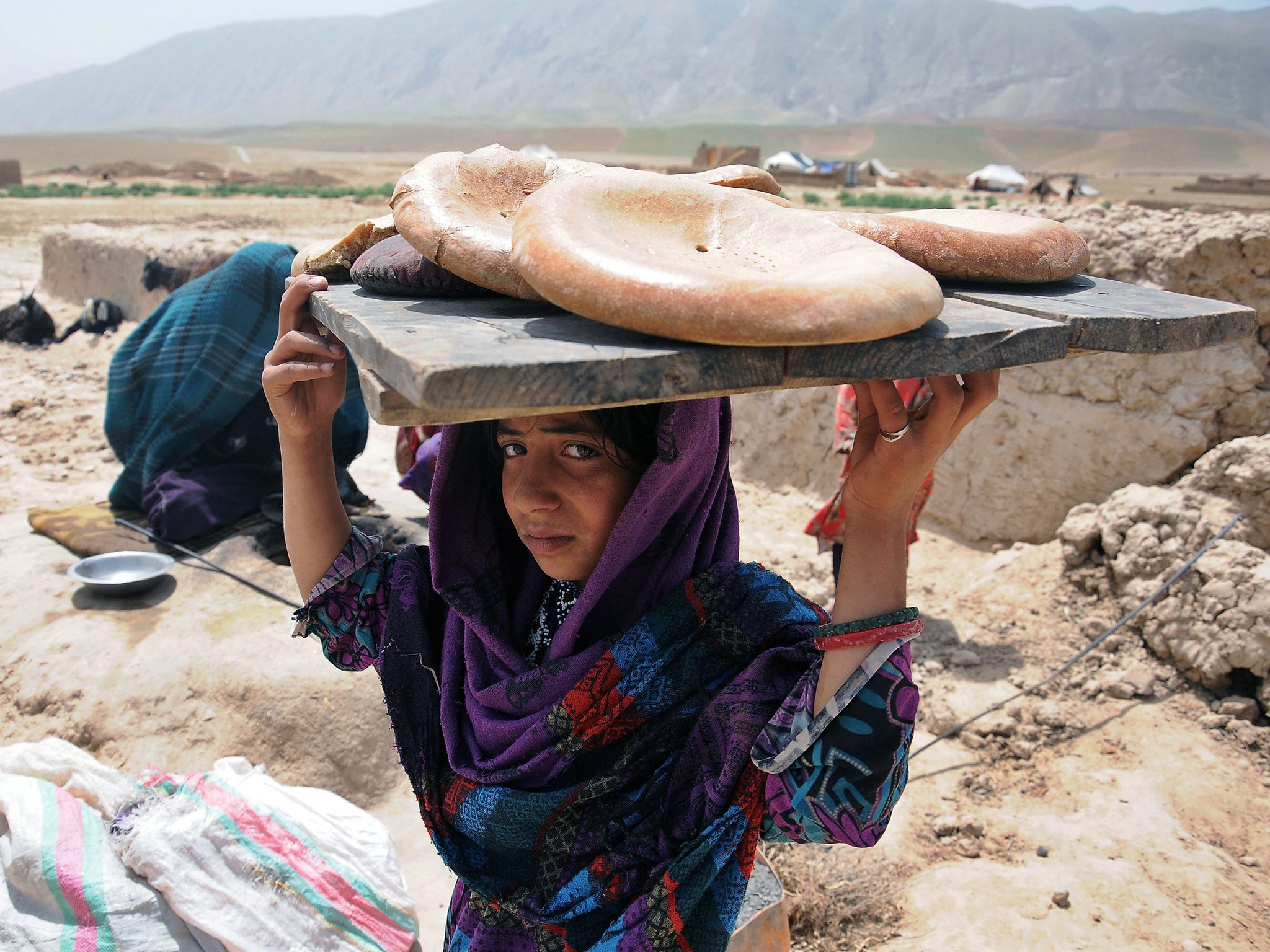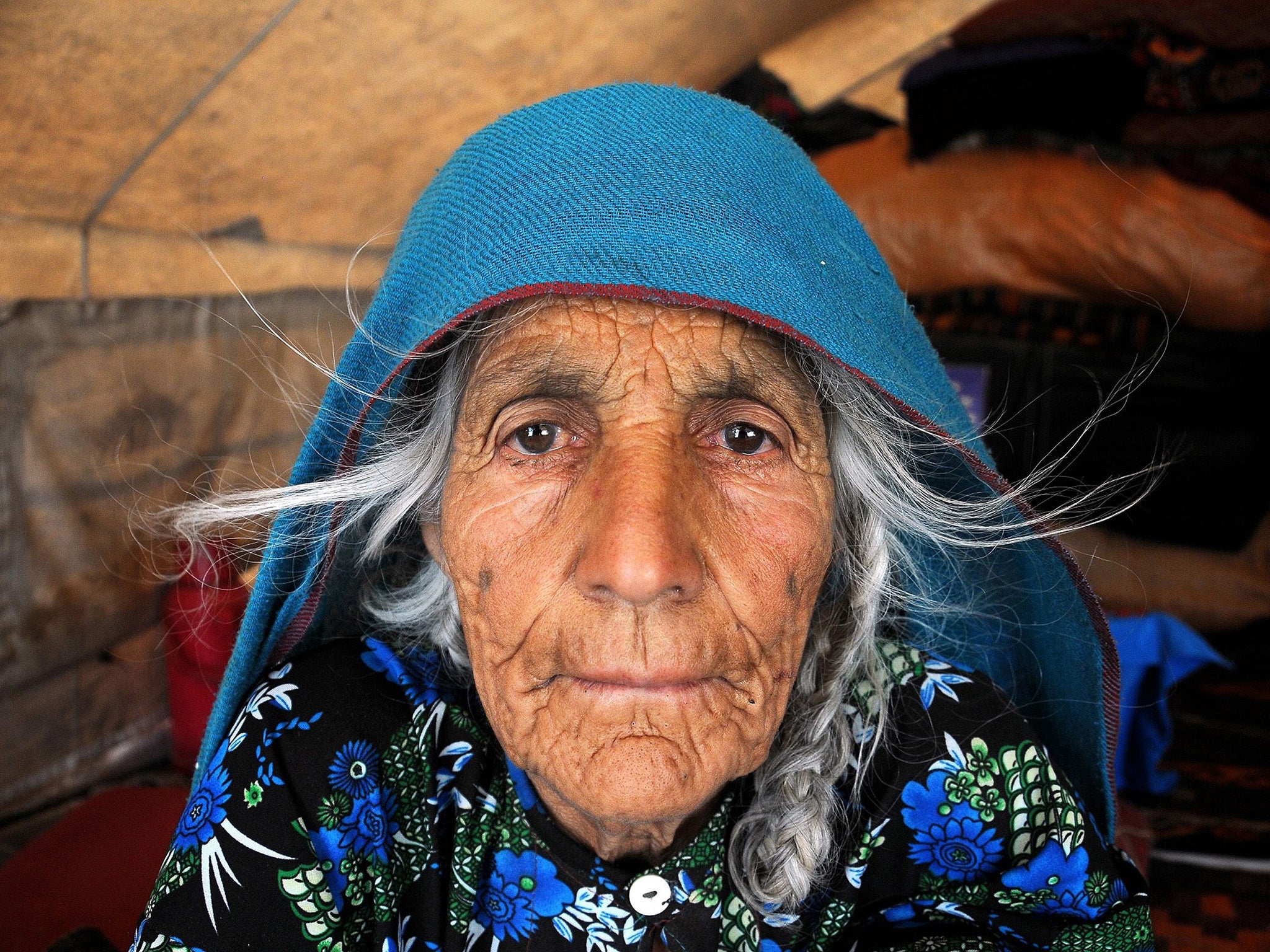Taliban in Afghanistan: Civilians flee north-eastern province of Kunduz as government launches offensive against militants
At least 10,000 people displaced after incursion by fighters, with women and children among casualties

Your support helps us to tell the story
From reproductive rights to climate change to Big Tech, The Independent is on the ground when the story is developing. Whether it's investigating the financials of Elon Musk's pro-Trump PAC or producing our latest documentary, 'The A Word', which shines a light on the American women fighting for reproductive rights, we know how important it is to parse out the facts from the messaging.
At such a critical moment in US history, we need reporters on the ground. Your donation allows us to keep sending journalists to speak to both sides of the story.
The Independent is trusted by Americans across the entire political spectrum. And unlike many other quality news outlets, we choose not to lock Americans out of our reporting and analysis with paywalls. We believe quality journalism should be available to everyone, paid for by those who can afford it.
Your support makes all the difference.Bibi Mariam was milking her cow when mortar shells landed near the family home in Imam Sahib district, which borders the city of Kunduz. “I quickly gathered my six children and ran for cover,” she said. “We couldn’t carry anything from the house, I even left cooked food on the table.”
She joined thousands of residents of the province of Kunduz, in north-eastern Afghanistan, forced into exile by a renewed government offensive against the Taliban. Fighting has intensified with government forces deploying heavy artillery and jets in a bid to push back Taliban fighters, who are now reported to be less than three miles away from Kunduz city, the provincial capital.
Fleeing residents said they heard heavy gunfire and saw plumes of black smoke rising from the outskirts of the city.
At least 10,000 people have been displaced in the past week after the Taliban and, reportedly, Isis supporters seized control of the areas surrounding the city and began marching towards its centre.

Many have sought shelter with relatives in the provincial capital. Some are living in tents, while several have fled the province.
“All the local bazaars are shut, streets are empty and there is a severe shortage of essential commodities in Kunduz and the neighbouring areas,” Khalid Mohammad Kundozi, who lives in Gortepa about three miles from Kunduz city, told The Independent.
Mr Kundozi said he and his family ran for safety to the capital when the Taliban launched its offensive about 10 days ago. “But we did not get any place to hide in Kunduz,” he said, as he travelled south towards the Afghan capital, Kabul.
Doctors running private clinics in the districts of Imam Sahib and Char Dara told The Independent said that they have been flooded with patients with bullet and splinter wounds.
“We have been treating women, children and the elderly,” one doctor said, speaking on condition of anonymity. “Villagers have been coming soaked in blood. Sadly, some of them could not be saved.”

Another doctor, who also requested anonymity, added: “We have also treated Taliban fighters. The civilian casualties and fatalities could be much higher than we know.”
Officials said the government forces have gained some ground. “Compared with the last few days, we have made progress. At least the villages have been cleared of Taliban,” Abdul Woodod Wahidi, spokesman for the Kunduz governor Mohammad Omer Safi, told The Independent.
But Mr Wahidi admitted that the Taliban were close to the city and still posed a huge threat. “That is true. But our operations are gradual, we want to make sure we don’t harm civilians. Ground and air operations by the Afghan Special Forces are under way,” he said.
Mr Wahidi said the provincial governor had earlier this week asked the people living on the outskirts of the city, and in the outlying districts, to vacate their homes within 24 hours so that the Afghan government forces could launch their offensive against the Taliban without worrying about the safety of civilians.
A local journalist, who wished to remain anonymous for fear of reprisals from the Taliban and the government, said there was no government whatsoever in Kunduz city and its neighbouring districts, as all government officials have fled. “The governor of the province himself took shelter at an airport when the fighting began. He was sure that his office will be run over by Taliban fighters. He had put a helicopter on standby and was ready flee Kunduz in such an eventuality.”
Commercial flights to Kunduz have been suspended. The fighting prompted the Afghan airline East Horizons to suspend its once-weekly flight from Kabul to Kunduz, the only commercial passenger air link to the northern city. “Since there are security problems we have stopped,” said Omid Sahi, an official at the airline’s office in Kabul.
The Kunduz police spokesman Sayed Sarwar Hussaini said that army and police, working with local anti-Taliban militias, killed 35 Taliban fighters in the last two days, including eight foreigners. “There is a woman among those who were killed,” he said, adding that the foreigners were identified as being from Pakistan, Uzbekistan and Chechnya in Russia.
The border region between Afghanistan and Pakistan has long been a magnet for Islamist militants of many nationalities. Officials have said some foreign jihadists operating in the area have sworn allegiance to Isis, known locally as Daesh. However, Mr Hussaini said: “We haven’t found any evidence that Daesh is involved in the Kunduz fighting.”
A local security official in Kunduz warned that the fight against the Taliban was going to be long and hard. “We need American jets and drones. We can’t fight this war with the weapons we have.”
Join our commenting forum
Join thought-provoking conversations, follow other Independent readers and see their replies
Comments